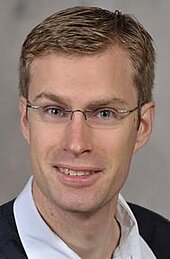Riefling, Markus
Congratulations on passing the viva voce examination
on 19 November 2012.
Dissertation topic: "The cultivation of power in freedom in power. A pedagogical consideration of drawing and transgressing boundaries."
Doctoral scholarship according to the Bayerisches Eliteförderungsgesetz (1 August 2009 - 31 July 2011).
Contact address at the University of Würzburg:
Chair of General Educational Science
Philosophy Building, Am Hubland
97070 Würzburg
First supervisor:Prof. Dr Andreas Dörpinghaus
Second supervisors:
Prof. Dr Georg Stenger (University of Vienna)
Prof. Dr Ludwig Pongratz (TU Darmstadt)
Class in the Graduate School: "Education and Culture"
Doctorate in the Graduate School since WS 2008/2009
Abstract:
Pedagogical action can no longer be definitively justified from a post-structuralist perspective. This fundamental problem of pedagogy is analysed by contrasting the thinking of Immanuel Kant and Michel Foucault. Through a comparison, Markus Riefling determines the distance that separates contemporary un-founded pedagogy from a foundation that is orientated towards and convinced by Enlightenment reason, as presented by Kant. The void in the justification of pedagogical action is constitutive and insoluble. It can be made fruitful for pedagogical action by placing the lack of justification and emptiness at the centre of educational practice, which is illustrated here using the example of civic education.
The current problem of the foundation of pedagogy cannot be solved by intelligent action, nor will it disappear by itself over time. Rather, the problem with the foundation is necessary, irrevocable and thus constitutive for pedagogy. By contrasting Immanuel Kant and Michel Foucault, Markus Riefling determines the distance that separates a foundation orientated towards and convinced by Enlightenment reason in the sense of Kant from contemporary un-founded pedagogy. The author makes the constitutive void in the justification of pedagogical action fruitful for pedagogical thought and action under the guiding question "Do I cultivate freedom in power?". In doing so, he renews Kant's two-world theory and conceptualises freedom as the un-ground of pedagogy. For pedagogy, this opens up the perspective of concrete analyses of the interweaving of freedom and power in specific pedagogical contexts. On the other hand, pedagogical practice has the task of 'cultivating' transgressive moments of freedom. Kant's pedagogical question, renewed under sceptical auspices, can thus serve as a guiding question for - also empirical - investigations of pedagogical settings and orientate pedagogical action within the framework of an un-foundation.






